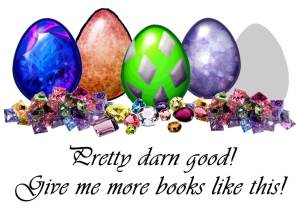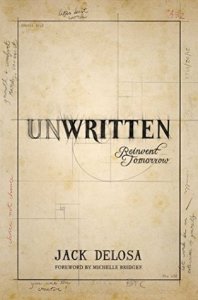Unseen
The secret world of chronic illness
Jacinta Parsons
“Broadcaster Jacinta Parsons was in her twenties when she first began to feel unwell – the kind of unwell that didn’t go away. Doctors couldn’t explain why, and Jacinta wondered if it might be in her head. She could barely function, was frequently unable to eat or get out of bed for days, and gradually turned into a shadow of herself. Eventually she got a diagnosis: Crohn’s disease. But knowing this wouldn’t stop her life from spiralling into a big mess of doctors, hospitals and medical disasters.”
 Wow. This is a heartbreaking and heartwarming account of one woman’s live destroying disease and how she got through and lives with her condition. I could hardly believe that doctors had gotten it so wrong, and the huge impact of a clinical trial gone wrong on the rest of her life. Remember that you don’t have an obligation to participate in something, but you do have an obligation to make the most of what you have. This is something the author realised over time, thankfully not too late.
Wow. This is a heartbreaking and heartwarming account of one woman’s live destroying disease and how she got through and lives with her condition. I could hardly believe that doctors had gotten it so wrong, and the huge impact of a clinical trial gone wrong on the rest of her life. Remember that you don’t have an obligation to participate in something, but you do have an obligation to make the most of what you have. This is something the author realised over time, thankfully not too late.
Jacinta admits that Indigenous Peoples and people of colour or low socioeconomic standing struggle to advocate for themselves in the system. That’s fine. My problem arose in that she didn’t consider other countries where healthcare isn’t a basic human right at all. I think of the horror of the USA system, and I consider Australian healthcare to be brilliant in comparison!
Possibly TMI time, but I’ve always struggled with ‘period pain’. I generally think of myself as quite stoic and straight-forward, but it’s something I haven’t bothered to go to the GP about. I manage to somehow forget that it’s a problem! Jacinta highlights why this is a BAD idea, and also why it’s something that women do that undermines themselves – and gives the statistics to back it up.
I hope that the medical students that I help to train have compassion and curiosity to look deeper into chronic health problems, and the self-awareness that it’s ok if GPs are sick sometimes too. This is a book not just for ‘normal’ humans to understand chronic illness, it contains insights relevant to health professionals as well. I would recommend reading it in small doses – as an audiobook I found it almost overwhelming, yet compelling to listen to at the same time.









 I have been ‘enjoying’ a number of non-fiction novels lately about the Holocaust. I say ‘enjoying’, but really they are quite sad reads due to the devastating loss of life as a result of Hitler’s anti-Semitic policies. I found myself horrified and yet not surprised at the level of brutality exhibited by the Nazi’s. It’s one thing to have a critical idea of World War II (as I’ve said before, my history knowledge is poor) and another to really experience it as these writers did.
I have been ‘enjoying’ a number of non-fiction novels lately about the Holocaust. I say ‘enjoying’, but really they are quite sad reads due to the devastating loss of life as a result of Hitler’s anti-Semitic policies. I found myself horrified and yet not surprised at the level of brutality exhibited by the Nazi’s. It’s one thing to have a critical idea of World War II (as I’ve said before, my history knowledge is poor) and another to really experience it as these writers did. This book really dives into all the insights of habits and leaves pretty much nothing out. It gives an in depth understanding of how habits are formed and how to start new habits. My only downside was that it had a lot of tips to create new habits but not a lot on changing old ones.
This book really dives into all the insights of habits and leaves pretty much nothing out. It gives an in depth understanding of how habits are formed and how to start new habits. My only downside was that it had a lot of tips to create new habits but not a lot on changing old ones.
 I listened to this as an audio book. It was just average. It wasn’t exactly what I thought it would be. I expected a lot more modern tips and tricks such as working from home apps, software, and things to assist in the modern age. I guess the author did have outsourcing in there in a general form which was nice. But instead, pretty much all of the tips and insights have been discussed before and I didn’t get anything new from it. For example, one point was the the urgent/important quadrants of using your time.
I listened to this as an audio book. It was just average. It wasn’t exactly what I thought it would be. I expected a lot more modern tips and tricks such as working from home apps, software, and things to assist in the modern age. I guess the author did have outsourcing in there in a general form which was nice. But instead, pretty much all of the tips and insights have been discussed before and I didn’t get anything new from it. For example, one point was the the urgent/important quadrants of using your time.

 I’d recommend this book to basically everyone, regardless of whether they have a family history of dementia or whether they’ve barely heard of the condition. It’s compassionate and sensible, and filled with ways to help people understand dementia rather than just judging someone by it.
I’d recommend this book to basically everyone, regardless of whether they have a family history of dementia or whether they’ve barely heard of the condition. It’s compassionate and sensible, and filled with ways to help people understand dementia rather than just judging someone by it. I listened to this as a talking book after I was disappointed by the last two fiction audiobooks I tried. Unfortunately this one let me feeling a bit cheated. I expect and enjoy memiors that are filled with human nature and the feelings of their writer. This memior fails for me because it is filled with too much dry history and is quite repeditive. Someone who enjoys history will probably get more out of this book than me.
I listened to this as a talking book after I was disappointed by the last two fiction audiobooks I tried. Unfortunately this one let me feeling a bit cheated. I expect and enjoy memiors that are filled with human nature and the feelings of their writer. This memior fails for me because it is filled with too much dry history and is quite repeditive. Someone who enjoys history will probably get more out of this book than me. Let me set you straight from the beginning. I read this as an audiobook and it was pretty average. There is nothing new on offer in this book. I had to force myself to keep listening – I didn’t even really want to finish it because then I would have to review it.
Let me set you straight from the beginning. I read this as an audiobook and it was pretty average. There is nothing new on offer in this book. I had to force myself to keep listening – I didn’t even really want to finish it because then I would have to review it. .
. This book was pretty good! The first half of the book goes through what a generation is and each of the generation types. Normally this is the boring part of business books where it just explains the definitions and how it currently is. I actually found this section the best part! Perhaps it was because I am a Gen Y, and so I learnt about the other generations. Or perhaps simply because it was funny and put the different generations in perspective – with different examples that we can relate to with others. The book definitely needs this first section.
This book was pretty good! The first half of the book goes through what a generation is and each of the generation types. Normally this is the boring part of business books where it just explains the definitions and how it currently is. I actually found this section the best part! Perhaps it was because I am a Gen Y, and so I learnt about the other generations. Or perhaps simply because it was funny and put the different generations in perspective – with different examples that we can relate to with others. The book definitely needs this first section. I thoroughly enjoyed the novel approach to World War II history in a way that made it approachable and interesting to me. For anyone who has an interest in fashion this book is going to be a great read. The author clearly had favourites! The key two women presented in a favourable light were Hanyu, who she presents as fearless and spunky, and Marta, who is compassionate for her team.
I thoroughly enjoyed the novel approach to World War II history in a way that made it approachable and interesting to me. For anyone who has an interest in fashion this book is going to be a great read. The author clearly had favourites! The key two women presented in a favourable light were Hanyu, who she presents as fearless and spunky, and Marta, who is compassionate for her team.